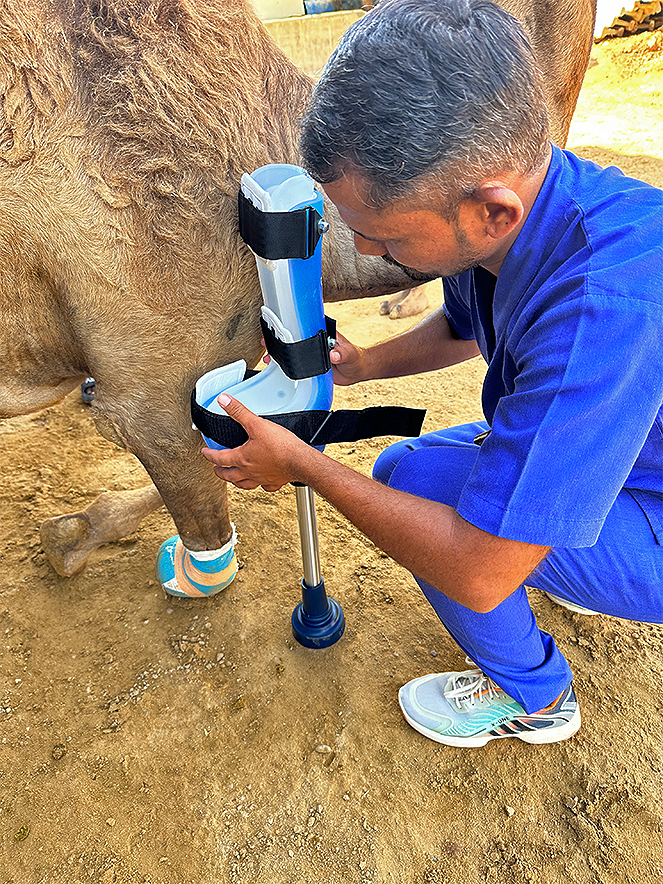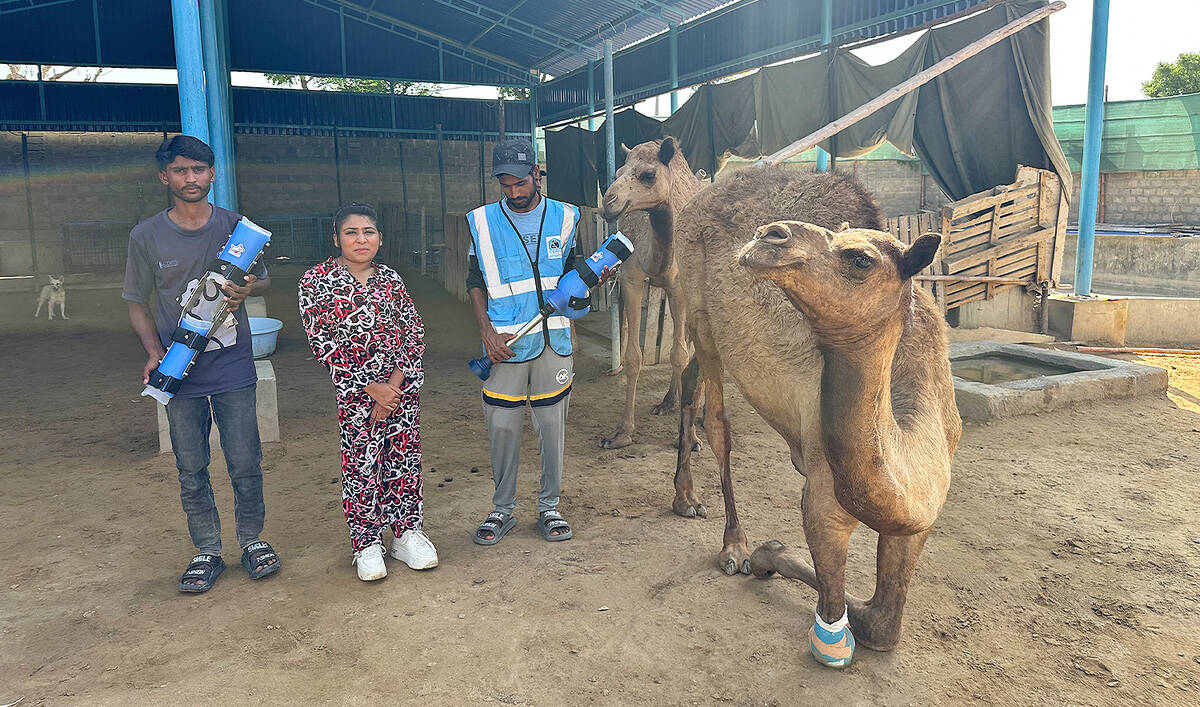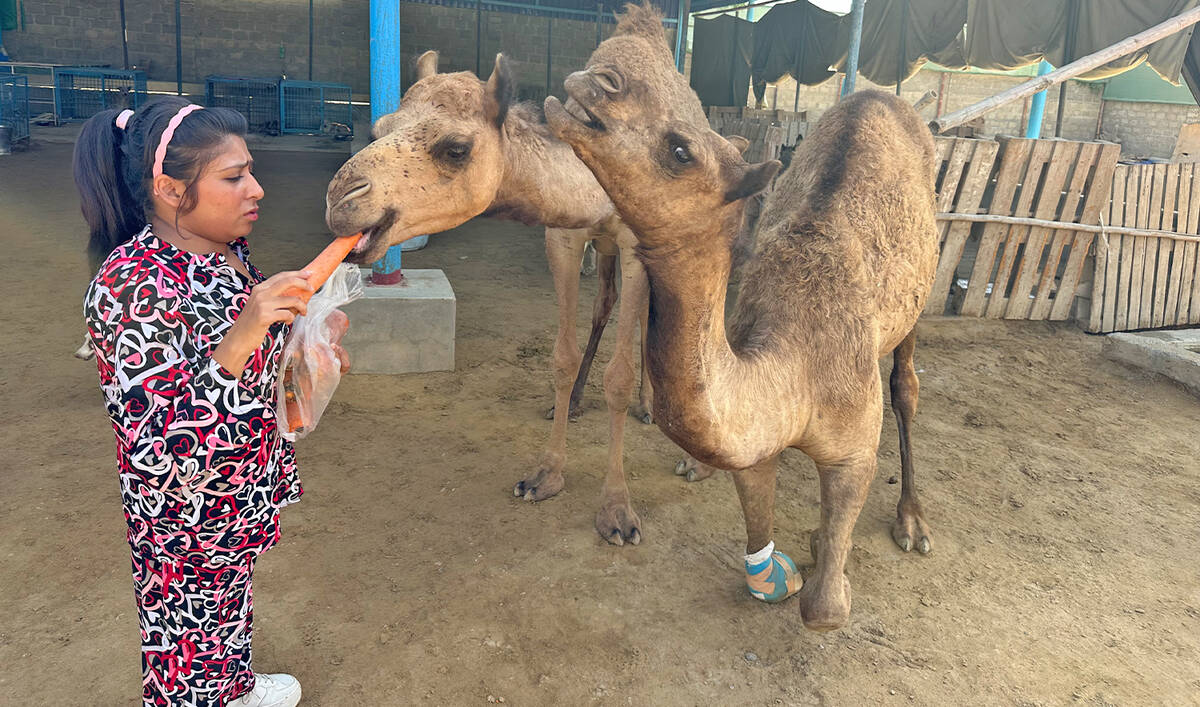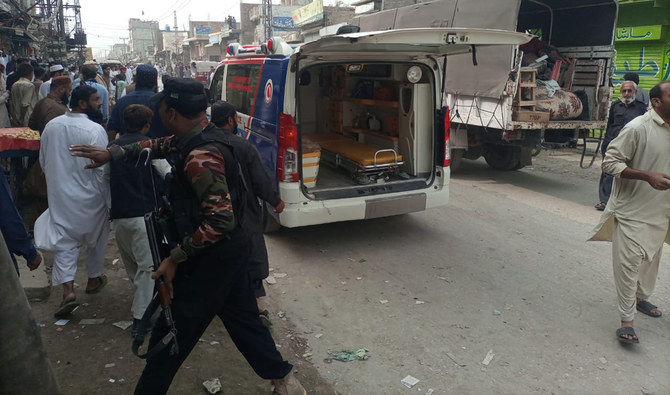QUETTA/PESHAWAR: Pakistan suffered the loss of 21 individuals, predominantly military personnel, following three separate militant assaults on police and security forces conveys in the western provinces of Khyber Pakhtunkhwa and Balochistan on Friday, as confirmed by senior government functionaries and official statements.
The country has experienced an uptick in militant attacks since the year’s beginning, with a concentration of these violent incidents occurring in the two provinces along the Afghan border.
Despite the conclusion of nearly two decades of conflict following the withdrawal of international forces in August 2021, Afghanistan remains mired in crisis.
Pakistani officials have repeatedly asserted that the militants targeting their country operate from the neighboring state, urging the Taliban government in Kabul to prevent their territory from being used as a staging ground for such attacks.
“On 3 November 2023, 2 vehicles of security forces moving from Pasni to Ormara in [Balochistan’s] Gwadar District, were ambushed by the terrorists,” the army’s media wing, ISPR, said in a statement. “14 x soldiers embraced shahadat [martyrdom] in the unfortunate incident.”
Balochistan, where Pakistan and China are jointly undertaking infrastructure development and regional connectivity projects, has long been a battleground for a low-level insurgency.
Baloch nationalists argue they are fighting against the unfair extraction of the province’s resources by the federal government, an accusation Islamabad denies.
Baloch separatist groups have also expressed opposition to Pakistan’s decision to build a strategic port in Gwadar, where the recent attack took place, to gain economic advantage in the region and tap Central Asian markets.
Speaking to Arab News, the deputy commissioner of Gwadar, Major (r) Aurangzaib Badini, said the attack took place at 3pm near Pasni.
He informed the convoy was “ambushed by terrorists with an IED [improvised explosive device] blast and gunfire attacks.”
Pakistan’s caretaker interior minister Sarfraz Bugti condemned the incident in a statement circulated by his office.
“The new wave of terrorism is a matter of concern,” he said, adding that Pakistan would continue to fight until the end of militant violence.
Earlier in the day, police and security forces also came under two separate attacks in Dera Ismail Khan district of northwestern Khyber Pakhtunkhwa province, resulting in seven fatalities.
The area’s Regional Police Officer, Nasir Hussain Satti, told Arab News one of the blasts was set off by a bomb planted on a motorbike, which exploded near a police van in a congested neighborhood of the city.
“The powerful blast left six civilians dead and another 22 people, including two policemen, wounded,” he informed. “It was a planted device with initial investigations suggesting the use of eight to 10 kilograms of explosives.”
Footage released by Rescue 1122 officials shortly after the incident captured a chaotic scene, with ambulances transporting the injured to hospitals.
Mujtaba Ahmad, a property shop owner near the blast site, described the explosion as powerful enough to rattle the entire marketplace.
He informed most shops were closed for Friday prayers with many people inside mosques at the time of the blast, a factor that likely prevented further casualties and damage.
“Initially, when the explosion occurred, people didn’t know what had happened but they started running,” he continued. “When the cloud of dust settled after the blast, we saw people in blood and damaged motorcycles.”
The second blast, according to the police officer, took place in Takwarra, a small settlement on the outskirts of Dera Ismail Khan, targeting a security convoy which left soldier dead and another wounded.
Khyber Pakhtunkhwa’s caretaker information minister Feroze Jamal Shah told Arab News the militant attacks during the day had led to precious loss of life, saying medical centers across the district were put on high alert after the explosions.
Expressing grief over the two incidents, he said the government would not bow to militants and continue to fight them.
“The blasts martyred several people and wounded 23,” he added. “We condemn both acts of terrorism in the strongest words. I have directed the district administration to provide best medical care to the wounded.”
Militant attacks in western Pakistan leave 21, including 15 security personnel, dead
https://arab.news/zsjdd
Militant attacks in western Pakistan leave 21, including 15 security personnel, dead

- Militants ambushed two vehicles of security forces moving in Balochistan’s Gwadar district, killing 14 soldiers
- Seven people also lost their lives and 23 injured in dual attacks on security convoys in Dera Ismail Khan district
Pakistani companies showcase precious gemstones, minerals at international expo in China

- Around 10 Pakistani companies are taking part in China Nanjing (International) Mineral, Gemstone & Fossil Expo
- Pakistani exhibitors present emeralds, tourmalines, topaz, quartz, aquamarine and marble specimens
ISLAMABAD: Around 10 Pakistani gems and minerals companies are showcasing their specimens at the ongoing China Nanjing (International) Mineral, Gemstone & Fossil Expo to prospective buyers, state-run media reported this week.
The third edition of the expo, which is being held from May 15-19 in the Chinese city of Nanjing, has attracted over 500 exhibitors from more than 50 countries, state-run Associated Press of Pakistan (APP) said in a report on Saturday. Various companies from around the world have displayed minerals, gemstones, fossils, and meteorites at the exhibition.
“Pakistani exhibitors are presenting a dazzling array of emeralds, tourmalines, topaz, morganite, quartz, aquamarine, pyrite, marble and onyx specimens from regions such as Gilgit Baltistan, Balochistan, and Khyber Pakhtunkhwa,” APP reported.
It cited a report from Chinese business news website China Economic Net as saying that Pakistani specimens have attracted “significant interest” from international buyers and collectors at the expo.
Pakistan has significant gemstone reserves, particularly in its northern and northwestern regions, which include a variety of high-quality stones such as peridot, aquamarine, topaz, ruby, and emerald.
There are 18 types of gemstones in Pakistan for which 178 major mining licenses have been issued.
“Pakistan possesses extraordinary geological treasures, and our trade ties with China are expanding beyond gemstones to industrial minerals,” Ghulam Mustafa, an exhibitor representing the Fine Art Minerals company, told APP.
“The response to our display has been phenomenal. Visitors are truly impressed by Pakistan’s natural wealth,” he added.
Muhammad Sadiq from Fine Nagar Gems and Minerals company returned to this year’s exhibition with a larger collection of specimens.
“Last year feedback was incredibly positive and we are very optimistic about this year sales and orders,” Sadiq said.
Pakistan hosted an international minerals summit in Islamabad last month. The summit aimed to attract foreign investment in the country’s mining sector, seeing participation from major international companies including Canada-based Barrick Gold and government officials from the United States, Saudi Arabia, China, Turkiye, the United Kingdom, Azerbaijan and other nations.
Islamabad hopes it can export its precious gemstones and minerals as it eyes sustainable economic growth driven largely by exports.
Karachi beat Peshawar by 23 runs as PSL returns with glitzy ceremony

- Peshawar Zalmi skipper Babar Azam scores 94 runs from 49 balls in Zalmi’s chase attempt
- Pop stars Sahir Ali Bagga and Asrar Shah enthralled fans as PSL returned after May 9
ISLAMABAD: Peshawar Zalmi skipper Babar Azam’s 94-run innings came to naught as his team lost to Karachi Kings at the Rawalpindi Cricket Stadium by 23 runs on Saturday, as the Pakistan Super League (PSL) marked its return with a glitzy ceremony.
The PSL was suspended on May 9 due to hostilities between nuclear-armed neighbors India and Pakistan. However, as both countries agreed to a ceasefire on May 10, the Pakistan Cricket Board announced the league would resume on May 17.
Kings captain David Warner led the scoreboard, scoring a fiery 86-run inning from 50 balls while James Vince smashed 72 runs from 42 deliveries. Khushdil Shah contributed with an impressive 43 runs from 15 balls as the Kings piled on 237-4 at the end of 20 overs.
“Match 27 Karachi Kings vs Peshawar Zalmi,” the PCB said in a statement. “Karachi Kings won by 23 runs.”
Former Pakistan captain Azam scored 94 runs from 49 balls, hitting four sixes in his innings before he got run out. Explosive opener Saim Ayub provided Zalmi with a strong start, scoring 47 runs from 31 balls while Tom Kohler-Cadmore chipped in with 20 runs from 15 balls.
PSL’s return after a week saw Pakistan Interior Minister Mohsin Naqvi and Army Chief General Syed Asim Munir watch the match live at the Rawalpindi stadium.
Pakistani pop stars Sahir Ali Bagga and Asrar Shah performed to enthrall the audience and pay tribute to the country’s armed forces before fans enjoyed a spectacle of fireworks at the stadium.
Pakistan says eyeing transit hub role to connect South, Central Asian economies

- Pakistan Communications Minister Abdul Aleem Khan attends Kazan trade and investment forum in Russia
- Minister says Islamabad wants to increase landlocked Central Asian countries’ access to warm waters for trade
Islamabad: Pakistan’s Communications Minister Abdul Aleem Khan has said that Islamabad aims to emerge as a key transit hub connecting the economies of South and Central Asia, state-run media reported on Sunday.
Pakistan has been working to strengthen its position as a key trade and transit hub, connecting landlocked Central Asian states to the global market through its strategic location. Last year saw a surge in visits, investment discussions and economic activity between Pakistan and Central Asian nations as well as Gulf countries.
Khan was speaking at the “Russia-Islamic World: Kazan Forum” being held from May 13-18 in the country’s Kazan region. This forum is the main platform for economic cooperation between Russia and Islamic countries as per its website.
“Minister for Communications Abdul Aleem Khan says Pakistan aims to emerge as a key transit hub, bridging the economies of South Asia and Central Asia,” state broadcaster Radio Pakistan reported.
Addressing the closing session of the Kazan Forum, Khan noted the Gwadar Port in southwestern Pakistan has already started shipment and cargo services. He added that Islamabad intends to facilitate landlocked Central Asia’s access to warm waters.
Khan spoke about Pakistan’s strategic plans to connect its Karachi, Quetta and Gwadar cities with Central Asia and Europe through road networks.
“Abdul Aleem Khan welcomed the holding of the Kazan Forum and reaffirmed Pakistan’s strong commitment to playing an active role in regional development,” the report said.
Pakistan’s recent push to engage Central Asian countries and the Middle East takes place as Islamabad seeks to escape a prolonged macroeconomic crisis that has drained its country of financial resources and weakened its balance of payment position and currency.
Islamabad has sought to attract international investment in key economic sectors since it narrowly avoided a sovereign default in 2023 before a last-gasp International Monetary Fund (IMF) bailout helped it avoid that.
Pakistan, Iran agree to enhance trade and security cooperation

- Prime Minister Shehbaz Sharif, Iranian President Masoud Pezeshkian discuss bilateral cooperation over phone
- Sharif thanks Iranian president for Tehran’s role in defusing South Asia tensions between India and Pakistan
ISLAMABAD: Pakistan Prime Minister Shehbaz Sharif and Iranian President Masoud Pezeshkian this week agreed to enhance cooperation in trade, security and connectivity between the two countries, a statement from Sharif’s office said.
Pakistan and Iran have had a history of rocky relations despite several commercial pacts, with Islamabad being historically closer to Saudi Arabia and the United States.
Their highest profile agreement is a stalled gas supply deal signed in 2010 to build a pipeline from Iran’s South Fars gas field to Pakistan’s southern provinces of Balochistan and Sindh. Pakistan and Iran are also often at odds over instability on their shared porous border, with both countries routinely trading blame for not rooting out militancy.
“They agreed to enhance cooperation in all areas of shared interest, especially trade, connectivity, security and people-to-people contacts,” the Pakistani Prime Minister’s Office (PMO) said regarding a phone call between Sharif and Pezeshkian on Saturday.
It said the Iranian president invited Sharif to undertake an official visit to Tehran, which the Pakistani premier accepted.
The two officials also discussed Pakistan’s recent conflict with India, which saw at least 70 killed on both sides last week. India and Pakistan attacked each other with drones, missiles, artillery fire and fighter jets before Washington brokered a ceasefire between the two countries on May 10.
Sharif thanked Pezeshkian for Iran’s “sincere and brotherly diplomatic efforts” to defuse tensions in South Asia. He reaffirmed Pakistan’s “firm resolve” to defend its sovereignty and territorial integrity at all costs.
“The Prime Minister emphasized that Jammu and Kashmir dispute remained the root cause of instability in South Asia. He called for its just resolution, in accordance with the UN Security Council’s resolutions and the aspirations of the Kashmiri people, as key to enduring peace in the region,” the statement said.
‘Why did this happen to me?’: Maimed camel in Sindh finds new hope with prosthetic leg

- Cammie the camel lost her leg last year after a landlord attacked her for straying into his field for food
- A US-based company built a prosthetic leg and sent it to the shelter where she is recovering in Pakistan
KARACHI: A year after a brutal act of violence left her maimed and terrified, Cammie the camel is finally getting a second chance at life.
The young camel had wandered into a field in Sindh’s Sanghar district in search of food when a local landlord, enraged by the intrusion, hacked off her front leg. Her owner, a poor peasant, lacked the means and power to seek justice, even though livestock like Cammie often represent the sole source of livelihood for families in the region.
Despite the owner’s refusal to press charges, the state pursued the case under Pakistan’s animal cruelty laws, registering a case and arresting five people after widespread outrage.
Now, Cammie is in the final stages of her recovery, with a custom-made prosthetic leg ready to help restore her mobility.
“She was a very scared, nervous little child. The kind of child who would start screaming if she saw a new person,” Sheema Khan, manager of the shelter where Cammie has spent the past year, told Arab News.

Animal cruelty is not rare in Pakistan. Last year, another camel in Sindh was found dead with all four legs amputated. Animal rights groups have also highlighted the mistreatment of other creatures, such as bears that are illegally captured, tortured and forced to perform.
While Pakistan has animal welfare legislation, enforcement remains weak, sporadic and hampered by limited resources.
“There was always a question in Cammie’s eyes: ‘Why did this happen to me? I had only gone to find food because I was hungry,’” Khan said, adding that it was heartbreaking to see her in pain whenever she tried to stand.

The shelter, which has been caring for Cammie throughout her recovery, received early assistance from Pakistani startup Bioniks, which took precise measurements of her limbs to prepare for the prosthetic. These were then sent to the United States, where a specialist at the Virginia-based company Bionic Pets crafted the custom leg.
With the prosthetic in their possession, the shelter team hopes Cammie will soon walk, run and play like other animals around her.
When Cammie first arrived at the shelter, she received antibiotics, pain relief and a clean enclosure. But her recovery extended beyond the physical.
“Whether it’s a human or an animal, wounds and illnesses don’t go away until the mind is healed first,” said Dr. Babar Hussain, the veterinarian overseeing her treatment. “So first, we focused on her mental healing, and only after that did we start her treatment.”

Her wound, which was infected and bleeding, has now fully healed.
“She is completely fit now,” Hussain said. “The entire wound is closed, and new skin has grown over it. There’s nothing to worry about.”
To help Cammie emotionally, the shelter introduced another young female camel, Callie, as her companion.

“We brought in Callie so that seeing her would motivate Cammie, encourage her to try to play,” Khan said. “Now, Callie and Cammie live together.”
As luck would have it, Callie was an orphan around the same age, in need of a peaceful home. Their bond proved transformational.
“The very night we brought Callie in, Cammie stood up with her. That night, we saw Cammie standing, without any support, alongside her friend Callie.”
Asked when her team would give Cammie her new leg, Khan said: “If it were up to us, we would immediately fit Cammie with the prosthetic leg and tell her: ‘Cammie! Now you can walk on all four legs. Stand up, come on, run!’”
“But now, everything depends on Cammie — on when she’s ready for this,” she added.
As Cammie trains with a harness and prepares mentally for her new limb, the team is hopeful and excited to witness the movement, which Khan says will arrive soon.
“You can walk on all four legs,” she said she would tell Cammie once she starts walking. “You’re free to go wherever you want, to play, to run and jump.”










